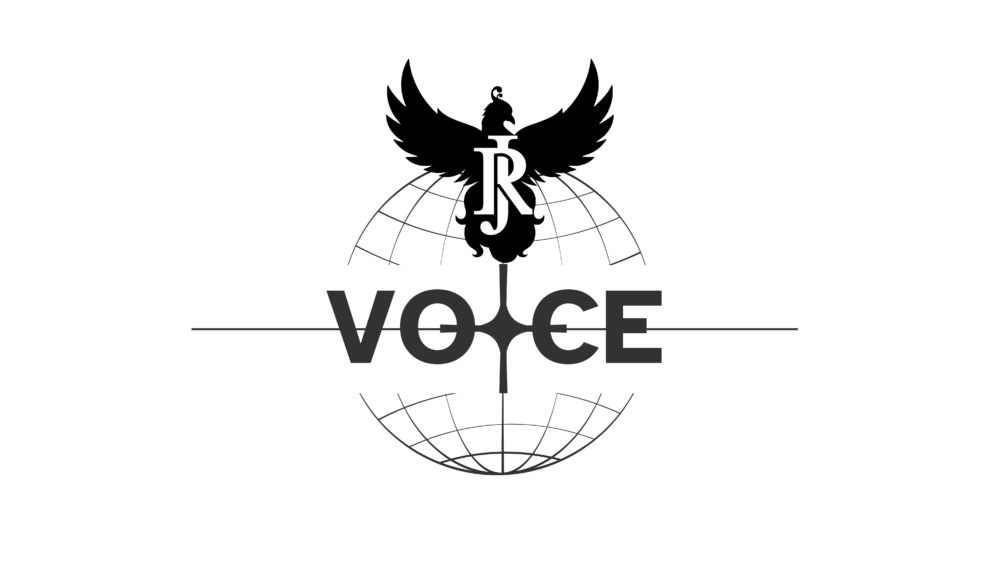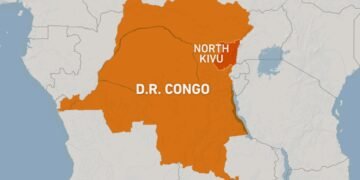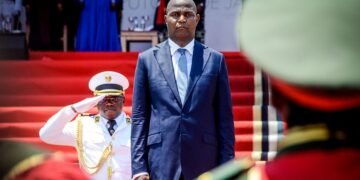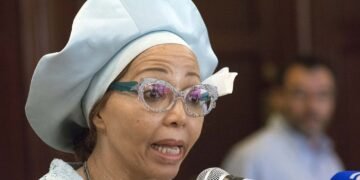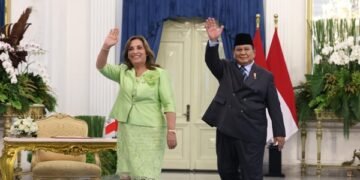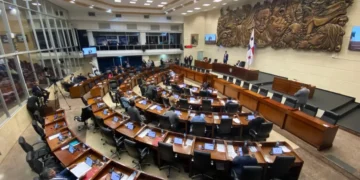In a bold and politically risky move, President Javier Milei’s government has announced a new $20 billion agreement with the International Monetary Fund (IMF) and the partial rollback of long-standing currency controls. The twin announcements come as Argentina faces mounting pressure from inflation, a fragile currency, and global market turbulence spurred by escalating trade tensions.
Milei, known for his aggressive economic overhaul, declared the partial lifting of foreign exchange restrictions—a policy known locally as the “exchange clamp” that has been in place since 2019. The government is replacing this system with a managed exchange rate band, allowing the peso to float between 1,000 and 1,400 per U.S. dollar. The Central Bank is expected to use incoming IMF funds to keep the currency within that range, but a sharp devaluation appears imminent.
“The last link in a chain that held our economy hostage has been broken,” Milei proclaimed during a nationally televised address on Friday, celebrating what he called the “end of the clamp.” However, the relaxation of controls is only partial: individual access to dollars has been liberalized, but corporations will only be allowed to remit profits abroad starting in 2025.
The current exchange rate regime, which had been devaluing the peso by a modest 1% each month, will now be replaced with a flexible band that also adjusts monthly. As of Friday’s close, the official exchange rate was 1,074 pesos per dollar, while the informal market rate had risen to 1,375. A Monday adjustment that pushes the official rate closer to the upper band could trigger a devaluation exceeding 20%.
Economists have long warned that Milei’s aggressive austerity and tight monetary policy were artificially strengthening the peso. Despite repeated denials by the administration—including Milei’s own February claim that there was “no exchange rate lag”—Friday’s announcements mark a significant shift in tone and strategy.
The IMF confirmed it had approved the new extended fund facility, which includes $15 billion in immediate disbursements. Of that, $12 billion will be delivered next week, followed by $2 billion in June and $1 billion at a later date. The 10-year repayment plan includes a grace period of four and a half years on capital repayments. The agreement also mandates regular reviews and performance targets.
In addition to IMF funds, Argentina is expected to receive $3.6 billion in near-term loans and another $2.5 billion in medium-term financing from international financial institutions. Furthermore, a $2 billion repo loan is also in the works. These funds are intended to rebuild Central Bank reserves and stabilize the currency amid fears of another run on the peso.
Despite the financial boost, the Central Bank remains under pressure. It has already sold nearly $5 billion in 2025 alone to contain currency volatility, including $398 million on Friday. Its gross reserves currently sit at $24.7 billion, but net reserves remain in the red. Under the new IMF agreement, Argentina is expected to return to positive net reserves by year’s end.
Milei attempted to frame the new IMF deal and exchange reform as victories for his economic reform program. However, the government’s triumphal tone was overshadowed by newly released inflation data, which revealed a sharp rise in consumer prices. March inflation hit 3.7%, a significant uptick from February’s 2.4% and January’s 2.2%. The highest increases were seen in education (21.6%) and food and beverages (5.9%), pushing year-on-year inflation to 55.9%.
In a Friday night statement, Milei acknowledged the setback, describing it as a “pause in the disinflation process” and blaming unnamed actors for attempting to “derail the path of change.” He nevertheless insisted that “inflation will inevitably collapse.”
The announcements arrive at a time of growing political strain for Milei, whose administration has seen declining approval ratings amid controversies, including the recent $Libra cryptocurrency scandal. With midterm elections looming, the IMF deal and currency liberalization represent a major gamble—one that could either restore investor confidence or deepen public skepticism if the reforms fail to stabilize the economy.

